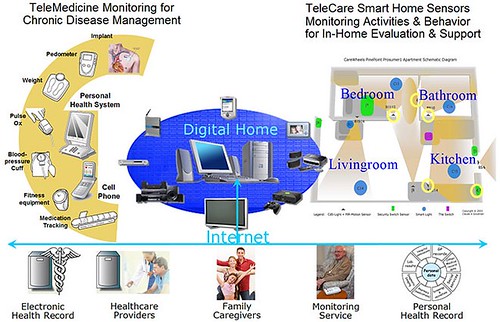(a) go for film on top of other texts and
(b) weave through specific films
The film here is Citizen Kane, already in the film school Vaults of Parnassus, so what's the fuss there? The scenario (hike) is through the two DVD set, meaning the movie, and then the American Masters series on Hearst versus Welles, WGBH, Sloane Foundation.
Why? Two reasons right off the top:
(a) Welles is already important in our Martian Math sequence, for his scary performance of the Mars Attacks story, meaning War of the Worlds by H.G. Wells (easy mnemonic there: Wells and Welles)
(b) WGBH American Masters also did Thinking Out Loud about Buckminster Fuller, around the same time, another high quality documentary. We'll be watching them both, perhaps back to back, with some discussion of the documentary style.
The reasons don't stop there. Here in Silverton, Oregon we have a lot of excellent history, and fellow Wanderer and historian Gus Frederick has curated a lot of it.
He's our local expert, I'd say world expert, on Homer Davenport, the powerful political cartoonist and Arabian horse enthusiast whose career intertwined with Hearst's on many levels.
He's our local expert, I'd say world expert, on Homer Davenport, the powerful political cartoonist and Arabian horse enthusiast whose career intertwined with Hearst's on many levels.
In other words, I'm trying to branch out to pick up more and more history, such as the Spanish American War, such as the Anti Imperialist League (Mark Twain, Andrew Carnegie...), such as the American war in the Philippines, not that many decades before the American war in Viet Nam....
Once we've studied Hearst as a model, we'll jump to other oligarchs. I'm not the only curriculum architect able to connect the dots around here.
I just want to be sure to underline this section of the pipeline: Welles on CBS doing War of the Worlds, and the whole arc of Orson's career, vis-a-vis that of his contemporaries. He knew Hemingway...
Another puzzle piece:
In this placed based curriculum we study the Columbia Gorge for at least these reasons:
(a) geology since Missoula Flood
(b) the invention of scenic photography with the Gorge a target
(c) submerging Celilo Falls, and the civilizations that converged there
(d) Sam Hill's commitment to state of the art road building along the Gorge
(e) hydropower dams, grids, ecology (along the Gorge and elsewhere)
(f) Hanford and the Manhattan Project and the chronology of nuclear testing (including with human subjects)
That's a lot of reasons to take in the Columbia Gorge, and we're just getting started.
I just want to be sure to underline this section of the pipeline: Welles on CBS doing War of the Worlds, and the whole arc of Orson's career, vis-a-vis that of his contemporaries. He knew Hemingway...
Another puzzle piece:
In this placed based curriculum we study the Columbia Gorge for at least these reasons:
(a) geology since Missoula Flood
(b) the invention of scenic photography with the Gorge a target
(c) submerging Celilo Falls, and the civilizations that converged there
(d) Sam Hill's commitment to state of the art road building along the Gorge
(e) hydropower dams, grids, ecology (along the Gorge and elsewhere)
(f) Hanford and the Manhattan Project and the chronology of nuclear testing (including with human subjects)
That's a lot of reasons to take in the Columbia Gorge, and we're just getting started.



